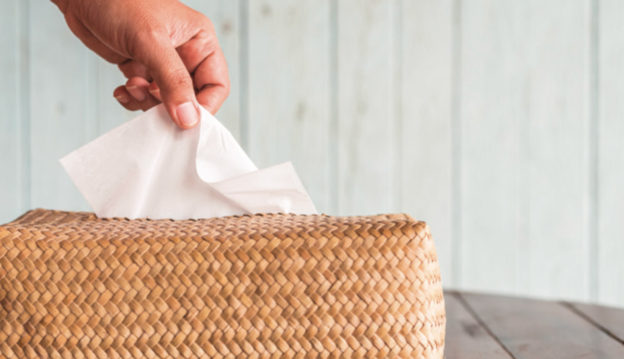‘Tis the season to be sneezing! With the warm days of spring come the beginning of grasses and pollens that can cause some to dread the sunny days and new plant growth. Commonly referred to as “hay fever,” the symptoms associated with the season are varied. e upper respiratory tract o en becomes irritated and causes the majority of symptoms that people experience. Most people suffer from some degree of sneezing, watery eyes, chronic nasal discharge, cough, itchy throat, and sinus headaches. In general, your head feels full and heavy and you just can’t stop blowing your nose!
Having allergies may signal a weakened immune system. Most people view the allergen (dust, pollen) as being the cause of the problem but it is o en just the catalyst that triggers the allergic person’s body to react. Rather than treating the symptom (the hay fever), we address the cause of the reaction (lowered immunity) by strengthening and enhancing the immune system. Although effective at treating the symptoms, conventional medicines such as decongestants, allergy shots, and antihistamines o en become habit forming and have many adverse effects. Natural medicine works at improving the overall health of the individual so that the season isn’t such a struggle.
Enhancing your overall immunity is always beneficial when dealing with a chronic health concern. Minimizing toxic input (refined sugar, caffeine, tobacco, alcohol, and exposures to solvents and chemicals) will improve the general functioning of the immune system. Avoiding food allergens lowers the allergic load that an individual deals with and can decrease the overall sensitivity to pollens.
Seasonal supplementation can also be very effective to enhance the immune system’s responses to pollen and grasses. High doses of vitamin C, vitamin B5, and zinc decrease the histamine response and are powerful anti-inflammatory agents. Medicines derived from foods such as pineapple (bromelain), Papaya (papain), and turmeric (quercetin) can also help support the immune system’s sensitivity. The agents of inflammation in the body (cytokines, leukotrienes) are derived largely from arachidonic acid which is most commonly found in red meat. Eliminating or cutting back on red meat can be very beneficial if you are prone to hay fever or allergies. Eating fish and supplementing your diet with omega-3 fats will also decrease the overall inflammation in the body.
Most people view the allergen (dust, pollen) as being the cause of the problem but it is often just the catalyst that triggers the a ergic person’s body to react.
Breathe easy this spring! Improving and rebuilding overall immune function will decrease your sensitivities to those pretty owers and green grasses. Using natural medicines can help you to enjoy the season and help prevent future illnesses through- out the year.
